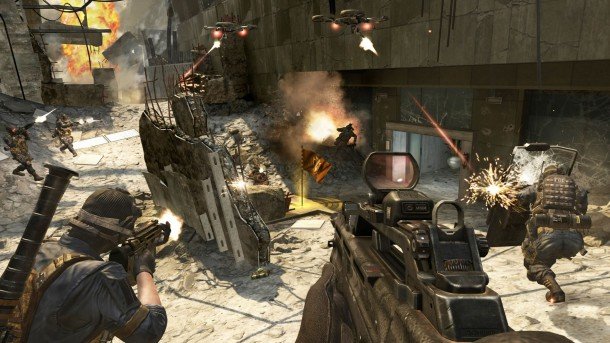Call of Duty switches to 3-year development cycle, next game from Sledgehammer

Activision's quarterly earnings call was yesterday and—to no one's surprise—the company made a lot of money. $1.5 billion in net revenues to be exact. A lot of that money was made with the Call of Duty games, which, according the Activision's calculations and the NPD, was the number one franchise in retail in North America in 2013. As you may have noticed, there's a new Call of Duty game every year, which may be part of the reason why we've grown weary of it . Activision announced that while it will keep to that relentless schedule, it will give the games' developers three years to work on each title as opposed to two.
Previously, development on Call of Duty alternated between the Infinity Ward and Treyarch studios, giving each a two-year development cycle. If you paid attention to the credits on Call of Duty: Ghosts , you would have noticed that it was led by Infinity Ward, but with help from Raven Software, Neversoft, Certain Affinity, and even Treyarch for the Wii U version. Going forward, Infinity Ward, Treyarch, and Sledgehammer Games will each get three years to work on Call of Duty installments. It's unclear whether that will free up developers like Neversoft and Raven to work on other projects, or if they will continue to support Call of Duty development.
Sledgehammer, which previously contributed to the development of Call of Duty: Modern Warfare 3, is developing the next Call of Duty, which will come out this year, and that CEO Bobby Kotick has already described as "the best Call of Duty game ever created."
The biggest gaming news, reviews and hardware deals
Keep up to date with the most important stories and the best deals, as picked by the PC Gamer team.

